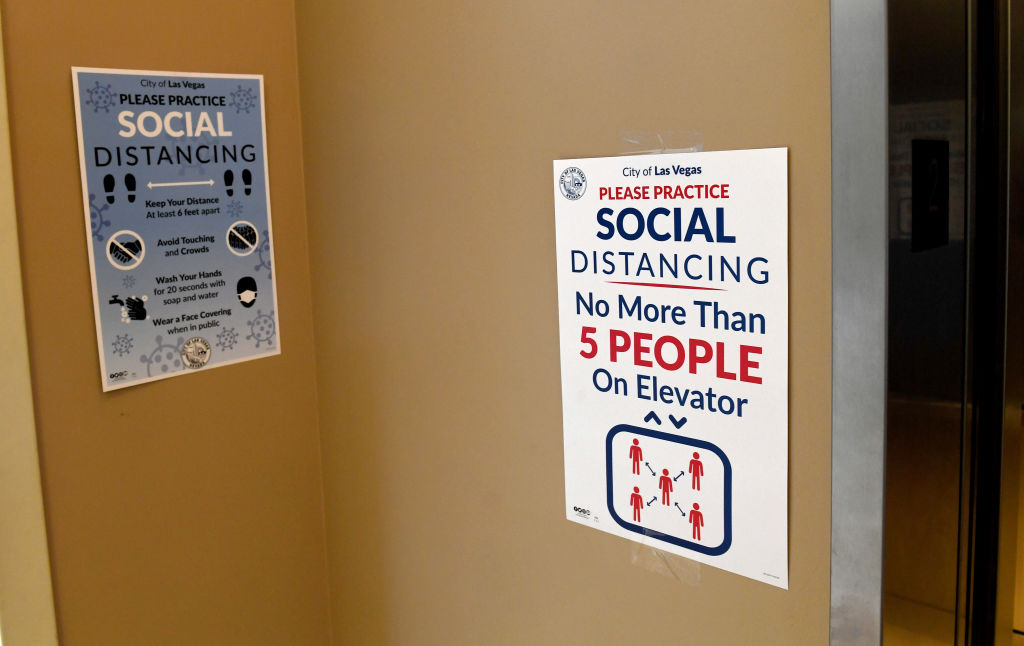Researchers estimate earlier lockdowns could have prevented tens of thousands of U.S. coronavirus deaths


Disease modelers at Columbia University estimate that if the United States had started implementing social distancing and lockdown measures one week earlier in March, roughly 36,000 coronavirus deaths could have been prevented.
The first imported case of COVID-19 in the United States was reported on Jan. 20, with community transmission established in the weeks following. Federal social distancing measures, which asked Americans to avoid unnecessary travel and social gatherings, were enacted in the U.S. in mid-March. The researchers estimated that had action been taken even earlier, with cities going on lockdown and people limiting contact with others beginning on March 1, about 83 percent of the country's deaths could have been avoided.
Epidemiologist Jeffrey Shaman, who led the research team, told The New York Times that just a slight change in timing would have stopped the worst exponential growth in cities like New York and New Orleans. "It's a big, big difference," he said. "That small moment in time, catching it in that growth phase, is incredibly critical in reducing the number of deaths."
The Week
Escape your echo chamber. Get the facts behind the news, plus analysis from multiple perspectives.

Sign up for The Week's Free Newsletters
From our morning news briefing to a weekly Good News Newsletter, get the best of The Week delivered directly to your inbox.
From our morning news briefing to a weekly Good News Newsletter, get the best of The Week delivered directly to your inbox.
The modeling shows that as restrictions continue to relax across the United States, local officials need to know how many infections there are in order to immediately address any hot spots. As of Wednesday night, there are more than 1.5 million confirmed coronavirus cases in the U.S. and 93,383 deaths.
A free daily email with the biggest news stories of the day – and the best features from TheWeek.com
Catherine Garcia has worked as a senior writer at The Week since 2014. Her writing and reporting have appeared in Entertainment Weekly, The New York Times, Wirecutter, NBC News and "The Book of Jezebel," among others. She's a graduate of the University of Redlands and the Columbia University Graduate School of Journalism.
-
 FDA OKs generic abortion pill, riling the right
FDA OKs generic abortion pill, riling the rightSpeed Read The drug in question is a generic version of mifepristone, used to carry out two-thirds of US abortions
-
 RFK Jr. vaccine panel advises restricting MMRV shot
RFK Jr. vaccine panel advises restricting MMRV shotSpeed Read The committee voted to restrict access to a childhood vaccine against chickenpox
-
 Texas declares end to measles outbreak
Texas declares end to measles outbreakSpeed Read The vaccine-preventable disease is still spreading in neighboring states, Mexico and Canada
-
 RFK Jr. shuts down mRNA vaccine funding at agency
RFK Jr. shuts down mRNA vaccine funding at agencySpeed Read The decision canceled or modified 22 projects, primarily for work on vaccines and therapeutics for respiratory viruses
-
 Measles cases surge to 33-year high
Measles cases surge to 33-year highSpeed Read The infection was declared eliminated from the US in 2000 but has seen a resurgence amid vaccine hesitancy
-
 Kennedy's vaccine panel signals skepticism, change
Kennedy's vaccine panel signals skepticism, changeSpeed Read RFK Jr.'s new vaccine advisory board intends to make changes to the decades-old US immunization system
-
 Kennedy ousts entire CDC vaccine advisory panel
Kennedy ousts entire CDC vaccine advisory panelspeed read Health Secretary RFK Jr. is a longtime anti-vaccine activist who has criticized the panel of experts
-
 RFK Jr. scraps Covid shots for pregnant women, kids
RFK Jr. scraps Covid shots for pregnant women, kidsSpeed Read The Health Secretary announced a policy change without informing CDC officials



